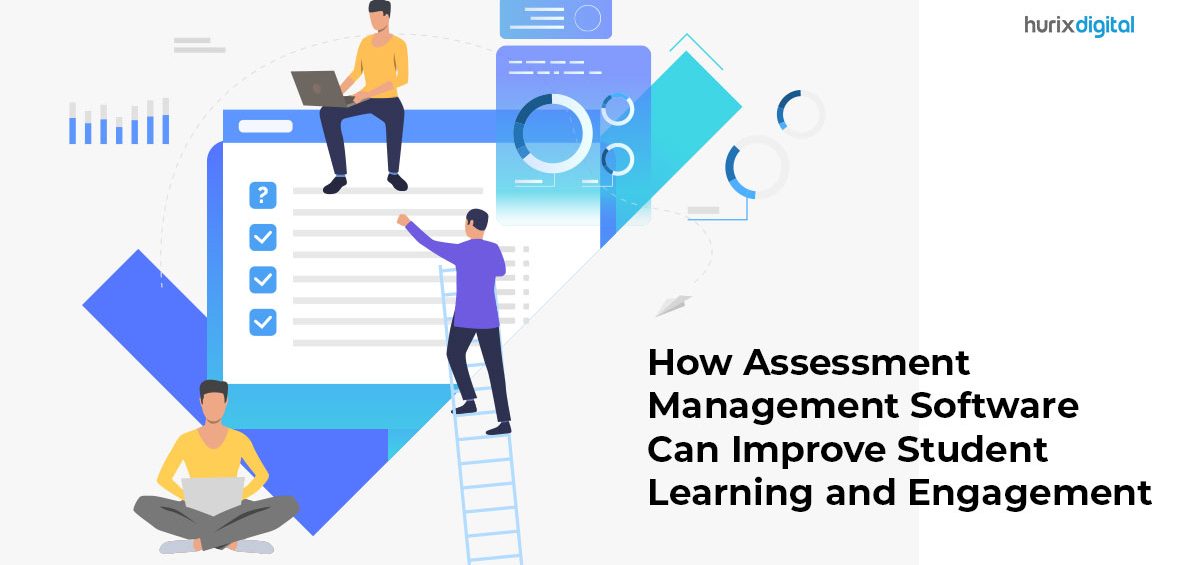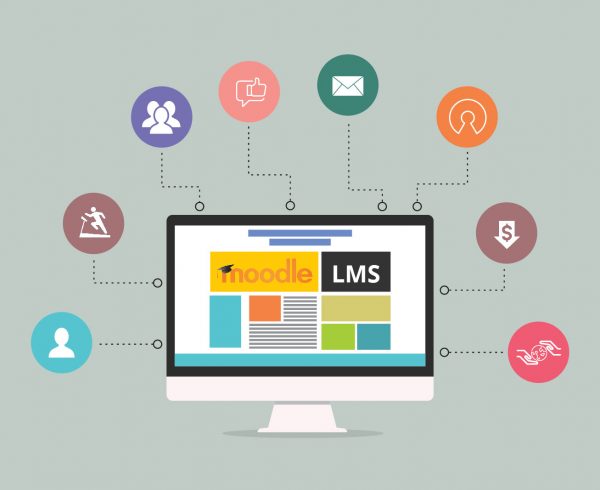Summary
This article provides an overview of assessment management software. It explains what it is, its important features, and how it can help educators improve student learning and engagement.
Assessments have double benefits – one, they enable the educators to understand how well their students are grasping a lesson, and two, they reflect a student’s weaknesses and highlight the areas they need to focus on.
As such, every digital course is accompanied by a series of assessments that students take at various stages during the course. However, for educators in particular, it could get a little difficult to manage the lessons and assessments for every individual student, especially since each course can be personalized and custom-paced.
This is where assessment management enters the scene. These online assessment platforms help educators and students maximize the value of their learning courses by reflecting on their true progress and performance. Let’s explore more about assessment platforms through this blog.
Table of Contents:
- What is Assessment Management Software?
- Important Features of Assessment Management Software
- How Does AMS Help Students Enhance Learning?
- Wrapping Up
What is Assessment Management Software?
Assessment management software is a tool that enables educators to streamline student assessment processes during a digital course. It empowers educators to execute a more thorough, accurate, and exhaustive evaluation of the academic performance and development of the students enrolled in a course.
For the students, the insights that this software delivers help them see their performance parameters in a new light. Using these insights, educators can guide students on the right path to improving their understanding of a lesson without falling behind on the coursework.
It may even help educators create healthy competition among the students of a course.
Also Read: What is Learning Content Management System (LCMS)?
Important Features of Assessment Management Software
Assessment management platforms offer four key features that transform online learning into a developmental experience for learners. These features help educators to organize the coursework into well-formulated modules and help them keep things neat.
1. Test Creation and Customization
Assessment platforms make it extremely easy for teachers to design tests and customize them for students. The platform offers options to insert a variety of questions into the test.
For example, multiple-choice questions, fill-in-the-blanks, subjective-type questions, pick the odd ones out, etc. Furthermore, teachers get the option to adjust the difficulty level of the assessment.
To prevent cheating and dishonesty, these platforms come configured with question randomization and cheating-proof testing that does not allow students to navigate away from the test window. Educators may be able to see their students’ live through the webcam.
2. Online Submission and Grading
The assessments carried out using this platform are internet-based, eliminating the need for students to be physically present on the premises. All the students need to do is launch the platform on their devices, use their student ID to log in to the platform, select the assessment, and complete it within the stipulated time.
The assessment platform has the feature of automatic submission when the time is up, preventing any delays or inefficiencies as they happen in a classroom setting.
Furthermore, these assessment management platforms provide immediate feedback to the students, letting them know about their scores, the sections where they performed best, and the areas they need to improve on.
3. Integrations with LMS
One of the best features of assessment software is its capability to integrate with your existing ERPs. For example, you can integrate this software with the learning management system in your enterprise.
This provides several key benefits:
- You get centralized access to all assessments submitted by all students enrolled in a course. All this data remains meticulously organized in the LMS.
- You can more readily set up automated performance emails to be sent out to the students who take the assessments by connecting student accounts through the LMS to the assessment management software.
4. Data Analytics and Reporting
The most important feature of assessment management software is its capability to generate detailed reports on individual students. It lets the educators see which students are lagging behind, which students are performing average, which students are excelling, and other data through assessment analysis.
This data helps educators smartly design a flexible curriculum that provides each student with a customizable opportunity to learn at par with their peers.
How Does AMS Help Students Enhance Learning?
Educators can tremendously improve the value of a digital or online course to students by employing software for formative assessment and summative assessment.
There are three chief enhancements that assessment platforms provide to students:
1. Immediate and Personalized Feedback
After submitting their assessments, these online platforms provide prompt feedback to the students. The assessment platforms automatically grade the performance of each individual student for each section of the test.
The students are then served with the reports that contain information about:
- The questions they answered correctly or incorrectly.
- The concepts or subjects they were more comfortable attempting quickly, and the concepts or subjects they took longer to answer.
Countless more metrics are visible to educators as well, enabling them to improve the course based on students’ needs.
2. Better Accessibility
Assessment platforms enhance the learning capacity and engagement of students by drastically improving the accessibility of a test. Since the tests are conducted online and are device responsive, this makes it possible for the students to access the test from any place they are free, ready, and available to take the test.
For example, a student can take the test while traveling on a bus, or they can take the test from the comfort of their homes. By making it easier to conduct assessments, educators are able to gather student performance data more readily and enhance the course to deliver better value to the learners.
Also Read: The Importance of Accessibility in eLearning: Strategies for Inclusive Training
3. Data-Driven Course Design
In the end, a course is only as efficient as the performance of those who enroll for it. A course with an exhaustive learning process may not be as engaging as a course with targeted learning that is interactive and customizable.
Assessment platforms shed light on the modules where students are struggling, disengaged, or spinning wheels. This helps educators improve the delivery of that concept or lesson, helping them make it more engaging and easier to learn.
Wrapping Up
Adaptive learning already has immense potential to help learners gain knowledge on their terms. Augmenting this pedagogy with an assessment method that is just as efficient can elevate the value that learners gain from an online course.
Assessment management can be implemented with ease by partnering with experts in the field, like Hurix Digital. Their digital education solutions include implements like learning technology solutions and custom software development that help educators design efficient coursework.
Get in touch with Hurix Digital to know more.











